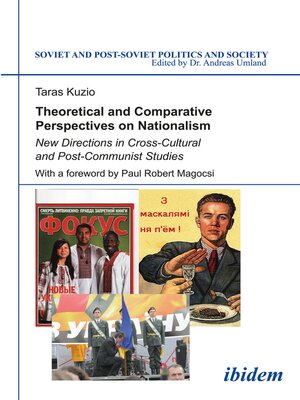Theoretical and Comparative Perspectives on Nationalism
ebook ∣ New Directions in Cross-Cultural and Post-Communist Studies · Soviet and Post-Soviet Politics and Society
By Taras Kuzio

Sign up to save your library
With an OverDrive account, you can save your favorite libraries for at-a-glance information about availability. Find out more about OverDrive accounts.
Find this title in Libby, the library reading app by OverDrive.



Search for a digital library with this title
Title found at these libraries:
| Library Name | Distance |
|---|---|
| Loading... |
This volume brings together 15 articles divided into four sections on theoretical and comparative studies, the role of nationalism in transitions to democracy, the application of theory to case studies, and the role played by history and myths in the forging of national identities and nationalisms. The book develops new theories and frameworks through engaging with leading scholars of nationalism: Hans Kohn's propositions are discussed in relation to an applicability of the term 'civic' (with no ethno-cultural connotations) to liberal democracies, Rogers Brubaker over the usefulness of dividing European states into 'civic' and 'nationalising' states when the former have historically been 'nationalisers', Will Kymlicka on the applicability of multiculturalism to post-communist states, and Paul Robert Magocsi on the lack of surveys and census data to support claims of revivals by national minorities in Ukraine. The book also engages with 'transitology' over the usefulness of comparative studies of transitions in regions that underwent only political reforms, and those that had 'quadruple transitions' implying simultaneous democratic and market reforms, as well as state and nation building. A comparative study of Serbian and Russian diasporas focuses on why ethnic Serbs and Russians living outside Serbia and Russia reacted differently to the disintegration of Yugoslavia and the USSR. The book takes to task experts of Russian and Soviet history who continue to utilize imperial frameworks of history, analyzes the re-writing of Ukrainian history within post-colonial theories, and discusses the forging of Ukraine's identity within theories of 'Others' as central to the shaping of identities. Finally, it offers a new framework of study of Ukrainian ethnic relations designed to be an alternative to the continued use of 'nationalism' in a Soviet manner in which nationalism in Ukraine is solely defined as a West Ukrainian phenomenon.







